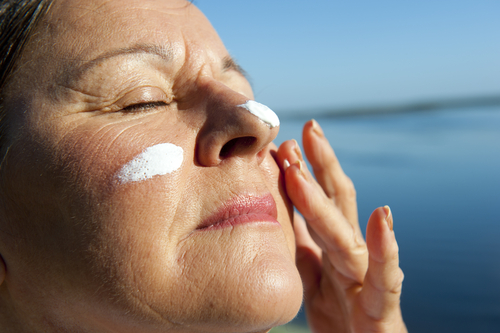Things you can do to make your anti-ageing products work better

Do you ever feel like your anti-ageing products are not making any difference?
Perhaps you might want to consider your beauty regime in order to help the products work better on your skin.
“Think of the surface of the epidermis—those dead cells—as a barrier,” says dermatologist Amy Wechsler.
“You have to remove it for products to get in.” Experts say you should always cleanse and use a toner on your skin before applying products to make sure dirt and grime aren’t affecting absorption. Besides cleansing properly, you should also layer moisturisers on top of your medicinal products as the most potent ingredient should be applied first.
Warm it up
Wash your face with lukewarm water instead of cold because it will raise the skin’s temperature slightly, causing blood vessels and pores to dilate and absorb better. “Space between the cells means there’s a greater surface area for absorption, which helps product get in,” says dermatologist Heidi Waldorf to Allure. Ingredients also move through skin and interact with cells more quickly when the skin is warm, says Bank.

Don’t dry your face completely
Contrary to popular belief, your skin doesn’t need to be totally dry before you apply a product. In fact, a little moisture makes your skin more absorbent. Damp skin (not wet) acts like a sponge, quickly absorbing whatever comes its way. This rule applies to almost every product—even retinoids. After you wash your face with warm water, apply products immediately.
Don’t put too much
If you use Retinols, go for a pea-size amount on your entire face as more will cause inflammation, dryness, and flaking. “More isn’t better in this case,” says skin expert Nussbaum.
Find the right time
Skin temperature rises by about half a degree while we sleep, because more blood is shunted to the skin, away from internal organs. And with greater warmth and blood-vessel dilation comes better penetration. Says Bank, “Though it’s not an enormous difference, your skin does absorb more overnight.” This pertains to any ingredient you apply before bed, not just retinoids. Also, only use RX retinoids at night. They can make your skin more sun sensitive, increasing your risk of sunburn during the day—which can create wrinkles and sun spots (defeating the purpose!).
Keep products properly
Light can influence the potency of effective ingredients so store your products in a cool, dark place, like your medicine cabinet. Vitamin C is particularly sensitive to light. To get more “de-puffing” out of your eye cream, try storing in your fridge, suggests Fitness Magazine.
Shake up your daily routine
You don’t need to use your prescription anti-ageing products every day. Two or three times per week will make them most effective for flake-free, smooth skin.

Shield your skin
Sunscreen is the ultimate defence against signs of ageing so be sure to use a minimum of SPF30. No sunscreen is actually waterproof or sweat proof so you’ll need to reapply every two hours if you head outside. If you suffer from acne, use a physical sunscreen with zinc or titanium oxide so it actually sits on top of your skin without absorbing into it and risking clogged pores.
Exfoliate for better results
Exfoliate once or twice a week to clear away dead skin cells, paving a clear path for antioxidants to work their magic. Note: Exfoliation can make your skin too sensitive to handle a retinoid, so stick to an antioxidant serum on these days.








 Proudly Australian owned and operated
Proudly Australian owned and operated